Oracle is doubling down on cloud infrastructure and AI to propel its growth, with an eye on becoming a trillion-dollar company. CEO Safra Catz reveals in an interview how the company’s aggressive investments and strategic expansions are poised to accelerate its financial ascent and why she’s convinced Israel will be flooded with investments after the war.
“I talk to investors, and everyone knows that Israel is still the Startup Nation,” says Safra Catz, CEO of software giant Oracle. “They want to return to investing here; they just need stability. I see that Israelis are tired, but I believe we are nearing the end of the war, and everything will recover. The country will be flooded with investments, literally. Israel is stronger today than in any previous war.”
Catz, 62, is one of the most powerful and admired executives in the world. She has worked at Oracle for 25 years, and a decade ago, founder and chairman Larry Ellison—who also serves as the company’s Chief Technology Officer—appointed her CEO. Today, she is the highest-paid woman on Wall Street, with a personal net worth estimated at $2.2 billion.
Although she left Israel for the United States at age six, Catz has maintained a strong connection to her homeland. The interview was conducted during her second visit to Israel since the war began. Her first visit in January was focused on showing solidarity with Oracle’s local branch, which employs about 500 people, and with the country at large. That trip included a tour of the Gaza border area, meetings with Israel’s president, and time with her Israeli family. This time, Catz’s visit was more business-oriented, arriving directly from Bahrain. There, she emphasized that Oracle’s investment in the Gulf state was directly influenced by the Abraham Accords, which she sees as just the beginning of normalization in the Middle East.
“Bahrain is the last country from the Abraham Accords I hadn’t yet visited,” she says. “I went to thank them for signing the agreement, but also to ensure they understood that Oracle’s investments are part of the economic reward for peace with Israel. Every time I mentioned the Abraham Accords, they smiled—they’re proud to be part of this process. We’ve done the same in Morocco, where we once had about 20 employees. Since establishing relations with Israel, we’ve built development centers employing hundreds, soon to exceed a thousand.”
Business Meets Diplomacy
Catz also addressed Oracle’s $1.5 billion data center investment in Saudi Arabia and plans for a second center in Israel, amid reports it might shift to the UAE. “We were the first company to build a data center in Israel serving the region, and demand has only grown since. The next center will ensure thousands of customers access the technology they need to thrive, even in these challenging times.”
She emphasized Oracle’s commitment to Israel, both economically and symbolically. “Israel’s economy is important to Oracle, to me, and to Larry. Alongside our significant donations, Oracle provides platforms that support Israel. After October 7th, everyone visiting our website was greeted by the Israeli flag, signaling our support for the country and its security forces.”
A Clear Stance
Has Oracle’s vocal support for Israel affected its business? “Not at all,” Catz says. “For employees, it’s clear: if you’re not for America or Israel, don’t work here—this is a free country. Unlike our competitors, we’ve never had employees sign petitions refusing to work with Israel or the U.S. government.”
Catz implicitly criticizes companies like Amazon and Google, highlighting their controversies. Amazon has been criticized for not addressing the kidnapping of its employee Alex Trufanov in Gaza, and Google has faced internal protests against its activities in Israel. “Our competitors have faced such issues, but at Oracle, we are a patriotic company. That’s part of who we are.”
As for customers, Catz points out that Oracle’s business has grown even in Saudi Arabia, where revenue doubled during this period. “Oracle’s stock recently hit an all-time high, not just due to market momentum but because our business is thriving worldwide.”
Between Trump and Golda
It is impossible to discuss Oracle’s business without delving into politics. Even before Republican affiliation became fashionable in Silicon Valley, Larry Ellison and Safra Catz were closely associated with the party and were significant contributors to its campaigns. Ellison famously donated $15 million in a single check to Tim Scott, the South Carolina senator who sought the Republican presidential nomination last year but lost to Donald Trump. Meanwhile, Catz contributed $250,000 to Trump’s 2020 presidential campaign, having served on his transition team in 2016. At the time, U.S. media speculated about her potential appointment to senior positions, including Director of National Intelligence or U.S. Trade Representative.
Any Chance We’ll See You Working in the White House Soon?
“I have not been offered any role, but I am thrilled by Trump’s return to the White House and happy for America. His victory is very important for the country and the world.”
What do you think will change with Trump’s return? How will it affect Israel?
“This will have a positive impact on Israel. While the process of normalization in the Middle East continued after Trump left office, there was a gap during Joe Biden’s administration. Now it will accelerate again. I’m very optimistic. During his first term, Trump achieved things many thought impossible, and I believe he will continue on that path.”
As a senior executive and outspoken feminist, are you concerned that the U.S. still seems unready for a woman president?
“I don’t think that was the issue in the election,” she responds diplomatically, quickly redirecting the conversation. “Israel had Golda Meir—she wasn’t necessarily the greatest woman, but she was one of the greatest leaders, period. That’s what I’m looking for.”
Were you surprised by the shift of some high-tech elites toward Trump, given Silicon Valley’s historical alignment with Democrats?
“I was pleased but not surprised. This shift is primarily among investors like David Sacks, Shaun Maguire, and Marc Andreessen, rather than high-tech companies themselves.”
Are you concerned about Elon Musk’s deep involvement in Trump’s campaign and possibly his future administration? After all, he’s something of a competitor?
“No, he’s not a competitor but a friend. Larry and Elon are close friends, and they share many qualities: vision, courage, and strong business acumen. Our role is to help make their visions a reality.”
There’s an expectation that a Trump administration would be particularly friendly to large businesses, easing regulations and facilitating mergers and acquisitions with fewer antitrust challenges. Would Oracle benefit?
“We’re not that big—just $60 billion in revenue and half a trillion dollars in market value. We’ve also never pursued acquisitions significant enough to attract serious government scrutiny, even though we’ve acquired 125 companies. The last time we faced antitrust issues was during George W. Bush’s presidency.”




